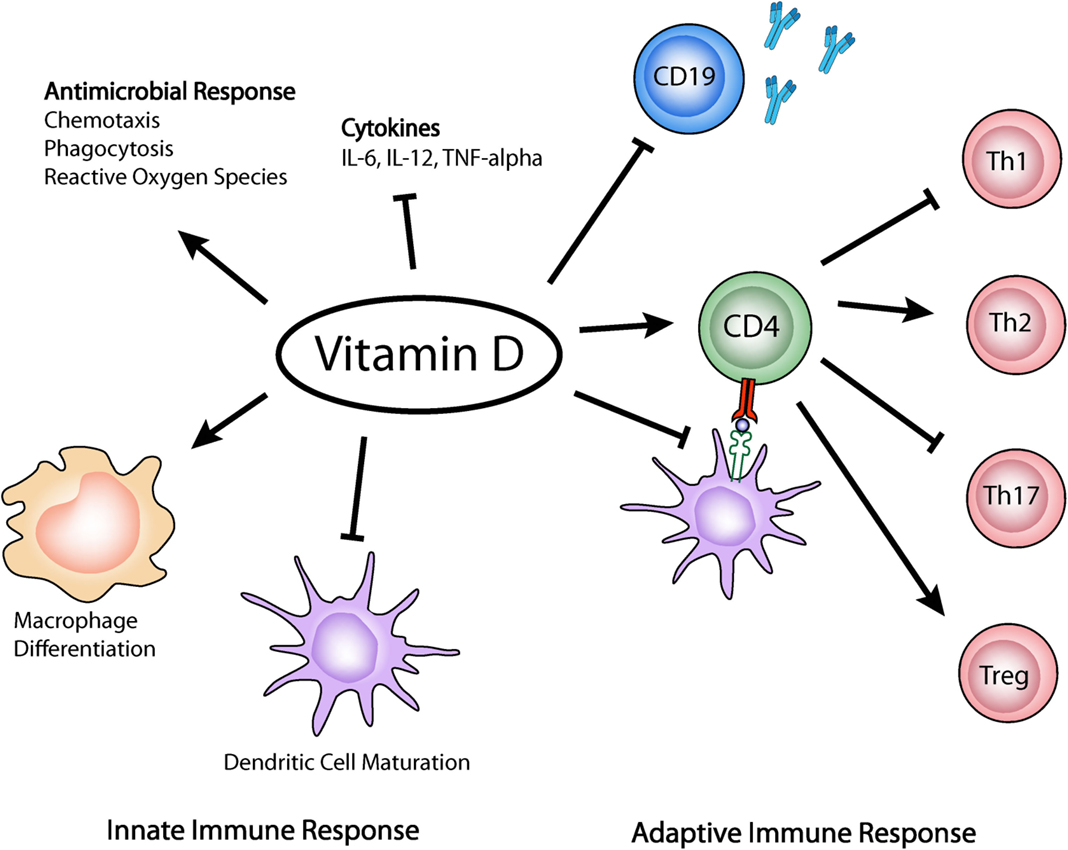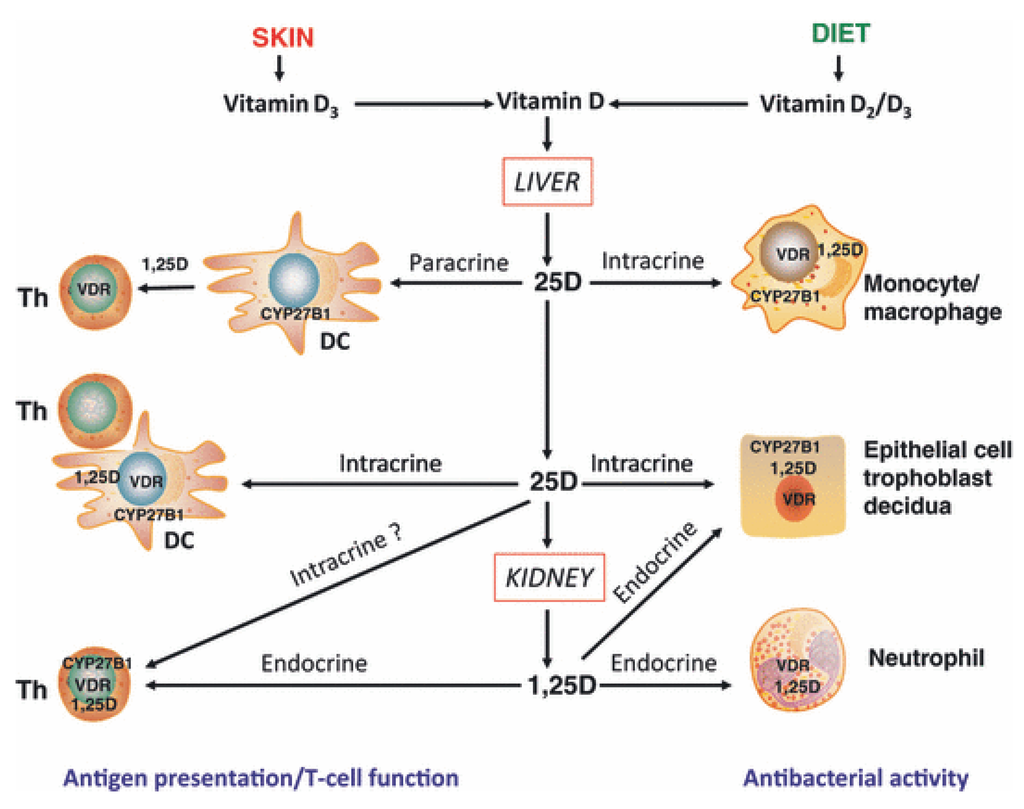Boost Immunity: How Vitamin D Supports Your Immune System & More
Can a robust defense system truly shield you from the onslaught of illness? The answer, unequivocally, is yes. A strong immune system acts as your body's primary guardian, tirelessly working to neutralize threats and maintain your well-being.
This innate power to protect, however, isn't a given. It demands mindful cultivation. While a multitude of factors contribute to immune system health, a critical foundation lies in the nutrients we provide our bodies. Vitamins C, B6, and E, along with zinc and selenium, are well-known allies in this crucial endeavor. Vitamin C, in particular, is often touted as a champion of immunity, a popular choice for those seeking to bolster their defenses. Yet, amidst the array of vital substances, another nutrient steps forward as a key player in the intricate dance of immune function: Vitamin D.
Once primarily recognized for its role in building strong bones, vitamin D has now been unveiled as a multi-faceted nutrient with profound implications for overall health. Research continues to illuminate its crucial contributions to areas beyond skeletal health, revealing its significant involvement in the intricate workings of the immune system. The discovery of vitamin D receptors on almost all cells of the immune system was the first hint of significant role of vitamin d on the immune system. This is just the tip of the iceberg.
- Jacob Nicholas Caan Life Of James Caans Son Untold Story
- Laro Benz Ethnicity Family Amp Career Unveiling His Story
| Attribute | Details |
|---|---|
| Name | Vitamin D |
| Category | Essential Nutrient |
| Primary Function | Immune System Support, Bone Health, Calcium and Phosphate Metabolism |
| Key Benefits | Modulates immune responses, reduces inflammation, supports bone health, regulates calcium and phosphate levels |
| Sources | Sunlight exposure, fatty fish (salmon, tuna, mackerel), fortified foods (milk, cereals) |
| Targets of Vitamin D | Macrophages, Neutrophils, T Lymphocytes, Dendritic Cells, B Lymphocytes |
| Mechanism of Action | Interacts with vitamin D receptors (VDR) on immune cells to regulate innate and adaptive immune responses. Crucial for the production of AMPs (antimicrobial peptides). |
| Impact on Immune System | Enhances the body's defense system against microbes and pathogens, reduces susceptibility to infections and diseases, potentially reduces incidence and severity of autoimmune diseases. |
| Deficiency Implications | Increased autoimmunity, increased susceptibility to infection, associated with many diseases. |
| Link to further information | National Center for Biotechnology Information (NCBI) |
Vitamin D orchestrates a complex interplay within the immune system, modulating its intricate responses and reducing inflammation. Low levels of this essential nutrient have been linked to an increased susceptibility to infections and various diseases. Understanding how vitamin D contributes to immune system functionality exposes its multifaceted role in enhancing immunity against infections. This is also the case while simultaneously modulating inflammatory responses, a crucial function for preventing autoimmune diseases.
The impact of vitamin D on immune cells is incredibly complex, but the latest research has highlighted its functions in supporting both the innate and adaptive immune systems. These systems act as a unified front against threats, with the innate system providing the first line of defense and the adaptive system mounting a targeted response. In the innate immune system, Vitamin D promotes antimicrobial responses, and regulates the maturation of immune cells.
The innate immune system is the body's first line of defense. Key players include macrophages, dendritic cells, natural killer (NK) cells, and innate lymphoid cells (ILCs). Vitamin D influences this system, affecting the function of these cells. Macrophages, for example, are critical for engulfing and eliminating pathogens. Vitamin D aids this process by modulating the responses of these critical immune cells. Vitamin D also plays a role in regulating the maturation of dendritic cells, which are antigen-presenting cells that initiate the adaptive immune response. The regulatory role of Vitamin D has been shown to affect the innate immune system, playing a critical role in many diseases' pathophysiology.
- Miaz Girthmaster Unveiling The Viral Sensations World
- Kaitlan Collins Relationship Status Salary Whats The Latest
The adaptive immune system is a sophisticated, targeted defense. This system, is designed to "remember" past encounters with pathogens, allowing for a swift and specific response upon subsequent exposure. Vitamin D influences the adaptive immune system through its actions on B and T lymphocytes. These cells are crucial for generating antibodies and coordinating cell-mediated immune responses. Vitamin D interacts with vitamin D receptors (VDR) expressed on B and T lymphocytes, modulating their activity and influencing the overall adaptive immune response.
The significance of vitamin Ds role in immune function was established and confirmed following the discovery that nearly all cells of the immune system contain vitamin D receptors. The body's defense systems require vitamin D to effectively identify and neutralize threats. Vitamin D is crucial for the production of antimicrobial peptides (AMPs) locally, specifically through the 1,25(OH)2D/VDR complex, providing an added layer of protection against infection.
Epidemiological evidence has suggested that vitamin D deficiency is associated with increased autoimmunity, as well as an increased susceptibility to infection. Ongoing research into the role of vitamin D in immune system regulation is expected to provide further insights into the nutrients protective effects against autoimmune diseases. The incidence and severity of autoimmune diseases, including rheumatoid arthritis (RA), juvenile diabetes mellitus, inflammatory bowel disease, and multiple sclerosis (MS), may be reduced by increasing vitamin D intake.
Furthermore, vitamin D plays a crucial role in calcium and phosphate metabolism and maintaining bone homeostasis. This interplay of bone health and immunity may seem like two separate functions, but they are interconnected. A healthy skeleton supports overall wellness, and vitamin D ensures both bone strength and a functional immune system. It is known to come into play during the regulation of hormone secretion, immune functions, cell proliferation, and differentiation. Its deficiency can cause many diseases and their associated pleiotropic effects.
Vitamin D is classified as an immunomodulatory hormone, synthesized because of skin exposure to sunlight. Sunlight, fatty fish, and fortified foods are key sources of vitamin D. Many immune system cells, such as monocytes, macrophages, dendritic cells (DCs), and B and T lymphocytes, can convert 25(OH)D to 1,25(OH)2D, the active form of vitamin D. This suggests a potential role for vitamin D as a localized modulator of immune function. The influence of vitamin D on the immune system is a prime example of its broad spectrum of actions on physiological and pathological processes.
In essence, vitamin D can modulate both the innate and adaptive immune responses. This modulation is enacted by interacting with nuclear vitamin D receptors (nVDRs) expressed on B and T lymphocytes, neutrophils, monocytes, and dendritic cells (DCs). Vitamin D and 1,25(OH)2D3 modulate the innate immune response, further solidifying its role as a critical player in immune health.

The Role of Vitamin D in the Immune System as a Pro survival Molecule Clinical Therapeutics

Frontiers Immune Response Modulation by Vitamin D Role in Systemic Lupus Erythematosus

Nutrients Free Full Text Vitamin D and Immune Function